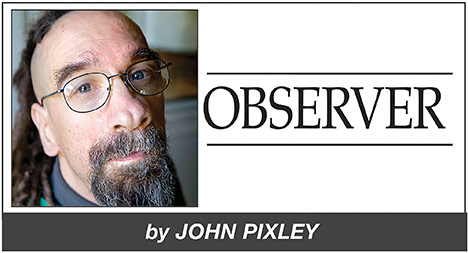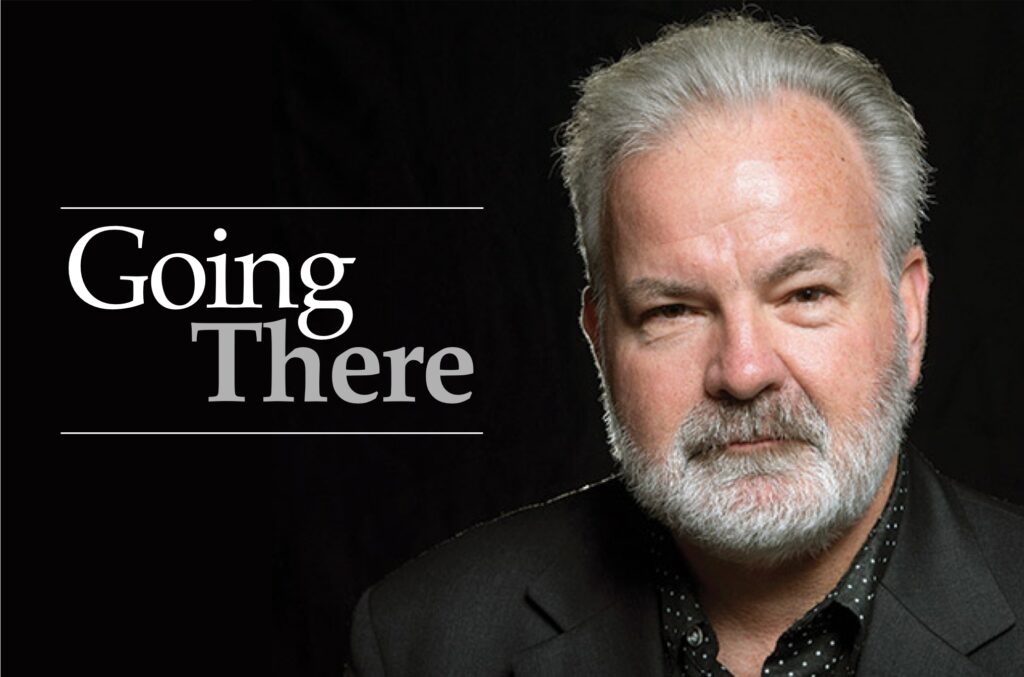Dads, Pops and other fatherly phrases
by Mellissa Martinez
Early on in life, I realized that my dad was different from other dads. He could quickly transform a chunk of clay into a spry looking creature with expression. He was able to make a coin disappear in front of my eyes only to find it behind my ear. He believed in the supernatural and had the oddest ability to magnetize objects with his hands. Our walls were covered with his colorful paintings, and our cupboards were filled with cups and bowls he had made. His talent infused my childhood and gave me the distinct impression that he was magical.
As I grew up, I realized that not every dad was magical like mine, but most dads had distinct talents. Some played music or fixed things. Others coached sports teams and cooked family dinners. Some dads told great stories or made awesome fires in the fireplace. Most dads, like mine, were really good at telling very bad jokes. According to a website devoted to ‘dad jokes,’ this type of joke is so embarrassing that only a dad can truly find it entertaining. Examples include knee-slappers like last night I dreamed I was a muffler—I woke up exhausted; I’ve just been diagnosed as colorblind—it came out of the purple, and a classic at our house, what did the fish say when it hit a wall? Dam!
Aside from meaning father, ‘dad’ also signifies one who is ‘the top man’ or ‘boss.’ This could be the reason it has picked up some curious word buddies along the way. Compounds like ‘daddy longlegs,’ ‘daddy-o,’ ‘sugar daddy,’ ‘big daddy’ and the newer ‘baby-daddy’ come to mind. ‘Dad’ and ‘daddy’ evolved from dada, just as ‘pops’ came from papa. Linguists consider these words to be prehistoric, stemming from one source—babies.
The consonant vowel formations dada, mama, baba, papa, tata, etc. are some of the first uttered as babies experiment with sound. It is believed that the words for mom and dad around the world are derived from these infant expressions. Consider the similarities of dadas in these unrelated languages: Romanian and Polish babies say tata. In Yiddish, it’s tatti. Turkish, Swahili, Arabic, Japanese, Farsi and Chinese-speaking tots call their dads baba, and Spaniards, Swedes and Russians, say papa. In Italian, it’s babo, and Korean appa. The list goes on—Hebrew abba, Kiswahili baba, Malay bapa, Urdu abbu and Modern Greek babbas.
Aside from dads, infants want nourishment. Universally, their early babbling sounds have also led to names for food. Papa means soft food prepared for infants in many languages. In Spanish, it refers to potato or baby food and in the Caribbean it means soft plum. In Romanian, tata means ‘dad’ and papa refers to ‘baby food.’ In Japanese, a baby’s mamma means ‘food.’
The word ‘father’ comes from the Indo-European *p?ter, which was also believed to come from a baby papa or pata sound. This led to ‘father’ in many languages, including Sanskrit pitar and Latin pater. According to Grimm’s Law, the p of p?ter changed to an f in Germanic languages, leading to Germanic fader, Old English, fæder and current ‘father.’ Relatives include words like ‘patron,’ ‘paternity,’ ‘patriot,’ ‘paternal’ and ‘patriarch.’
Although most of us don’t address our dads directly as ‘father,’ the word gets a lot of use. It can be used to refer to a priest, the Christian God or ancestors. In recent years, new terms like ‘biological father,’ ‘birth father’ and ‘adoptive father’ have sprung up and idiomatic expressions like experience is the father of wisdom or necessity is the father of invention are well-known.
Whatever you call your dad, there are a lot of ways to wish him a happy Father’s Day. In fact, Hallmark offers Father’s Day greetings in over 30 languages. If a Hallmark card is not your cup of tea, perhaps words could serve as the best gift. You could take a minute to tell him what his special talents are. In my case, my dad’s fast, flying hands, crazy energy and wacky tales shaped my idea of how a story should be told. Happy Father’s Day!
[Editor’s note: Mellissa Martinez’s father is Rich Martinez, painter, ceramicist, photographer and longtime teacher at Claremont High School. —KD]









0 Comments